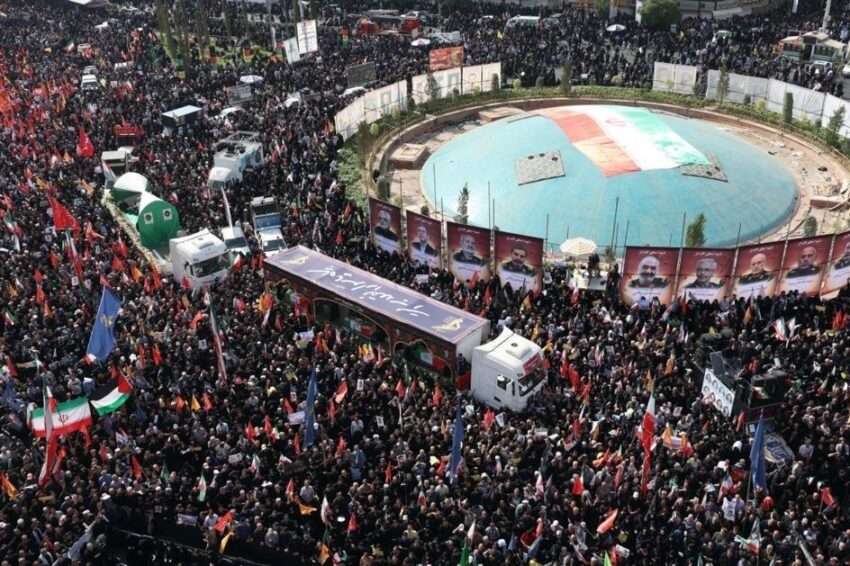Iranian President Claims Assassination Attempt by Israel
In a recent interview, Iranian President Masoud Pezeshkian claimed that Israel attempted to assassinate him during a conflict between the two nations that erupted last month. This assertion follows a series of unprecedented Israeli airstrikes that began on June 13, which targeted high-ranking military officials and nuclear scientists in Iran, leading to significant casualties.
Describing the incident in detail, Pezeshkian recounted a meeting at the time of the alleged assassination attempt, stating, “They tried to bombard the area in which we were holding that meeting.” He clearly stated that the plot was orchestrated by Israel and not the United States, suggesting a deepening rift between Iran and Israel amid ongoing tensions.
Conflict Casualties and Retaliation
The conflict, which lasted for 12 days, resulted in heavy casualties on both sides. According to Iran’s Foundation of Martyrs and Veterans Affairs, over 1,060 individuals lost their lives during the fighting. In response, Iranian forces launched a series of retaliatory strikes, which resulted in the deaths of 28 people in Israel.
As a critical element of this conflict, both Iran and Israel engaged in hostile actions targeting each other’s nuclear facilities. Strategic sites in Fordo, Isfahan, and Natanz were all implicated in the exchange of fire, leading to a fragile ceasefire declared on June 24.
Netanyahu’s Controversial Statements
In the midst of the conflict, Israeli Prime Minister Benjamin Netanyahu did not shy away from discussing the possibility of targeted assassinations, particularly concerning Iranian Supreme Leader Ayatollah Ali Khamenei. He suggested that the elimination of Khamenei could be a solution to end the ongoing conflict, a statement that garnered international attention, especially since there were claims that US President Donald Trump had previously vetoed such plans.
Additionally, Iranian officials reported that another assassination attempt against Foreign Minister Abbas Araghchi was successfully thwarted, further escalating the rhetoric around targeted violence and political assassinations in the region.
Calls for U.S. Non-Intervention
During the interview, Pezeshkian took the opportunity to criticize Netanyahu’s agenda in the Middle East, which he described as one driven by ‘endless wars.’ He urged the United States to steer clear of involvement in what he referred to as Netanyahu’s conflict, warning against the dangers of further escalation.
Pezeshkian articulated the need for the U.S. to focus on diplomatic solutions rather than military engagement, reinforcing the idea that the U.S.’s involvement in the region could spiral into greater conflict.
Nuclear Negotiations and Trust Issues
Despite the tensions, Pezeshkian indicated that Iran is willing to resume nuclear negotiations, contingent upon rebuilding trust between the involved parties. He made it clear that previous experiences have made Iran cautious about re-entering talks.
He stated, “We see no problem in re-entering the negotiations,” but emphasized that trust must be established first to ensure that any agreements made would not be violated by future Israeli attacks during the negotiation process.
Economic Opportunities and Sanctions
Pezeshkian further mentioned that Iran would welcome American investments if sanctions were lifted, expressing optimism about the potential for economic collaboration. He asserted that no regulations currently prohibit U.S. investors from engaging with Iran, indicating a willingness to foster better relations.
He expressed a desire for the U.S. to choose a peaceful path, warning that the alternative could lead to disastrous consequences, with both the U.S. and Israel being drawn into deeper military conflicts. He conveyed the message that the decision was in the hands of U.S. leadership, particularly under President Trump.
The Urgency of a Peaceful Resolution
Pezeshkian concluded his interview with a stark reminder of the stakes involved in U.S.-Iran relations, stating that the choices facing the U.S. are either to pursue peace or risk entanglement in ongoing conflict. He conveyed a sense of urgency, highlighting that the current moment presents a critical juncture for determining the future of regional stability.
The Iranian president’s remarks serve as a clarion call for diplomatic solutions amid a backdrop of conflict, suggesting a path forward that could benefit both nations if approached with mutual respect and understanding.







